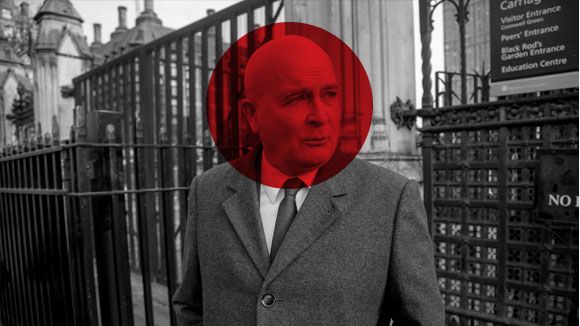The great mystery of the start of 2023 is why Sunak has allowed himself to be submerged by strikes. Already weak and precarious, he positively encouraged the escalation of industrial action which is now bringing his government—and the country—to its knees.
It is reminiscent of Jim Callaghan’s handling of the “winter of discontent” at the tail end of his flailing government in 1978–79, and we all know how that ended—in the 1979 general election. The difference is that this time the unions are broadly popular, so Sunak doesn’t even have public support for his failed quest to keep the country moving. On the contrary, the public mood is increasingly that short-term pain caused by strikes is worth it to push the government to change.
This wave of unrest started with the railway workers. Then came the nurses, ambulance workers and postal workers. Then border staff and civil servants. Now it’s the teachers, who voted by a whopping 90 per cent to strike against a pay deal which for most of them is worth about half the current inflation rate.
Virtually every public service is now blighted by strikes or threatened by them, and these services—particularly the NHS—were already struggling after the combined impact of Covid and more than a decade of austerity.
There are a lot of service-specific elements to these disputes. But three broad themes span them all. First, across the board, public service pay offers were well below the rate of inflation as it rose sharply last summer and autumn—and lower than offers in most of the private sector.
Second, the government consistently refused to reopen those pay offers, for example by asking pay review bodies to review their recommendations in light of inflation having risen sharply. Sunak, trying to appear emollient, said his “door was open”—but never to negotiate on the one thing that mattered, pay. It was also nonsense to say that revised settlements would be inflationary, when in all likelihood they would have come in somewhere between 5 per cent and 8 per cent—ie below the rate of inflation.
And third, faced by strikes that were broadly popular in almost every case except the action by train drivers, the government’s response was to double down. The Conservatives attempted to make the strikes themselves a political dividing line with Labour—as with the minimum service levels legislation this week—rather than resolve them.
This is truly bizarre. The net effect is not only to make Sunak and the government look weak and culpable, but to escalate the industrial action such that it is becoming almost a public service general strike. It is hard to see an end game that doesn’t involve bigger pay settlements, fudged maybe by two-year deals and by unions lowering their demands as inflation comes down. All of which could probably have been achieved by negotiation last autumn, when the NHS and teacher unions were far from sure they would be able to achieve the 50 per cent turnout level needed in ballots for strike action. Maybe the rail workers would have been an exception, but the broadening of the industrial unrest gave the RMT’s Mick Lynch a second lease of life just as he was coming under some internal pressure to settle.
Every step on the way has been a misjudgement by Sunak. In particular, the union chiefs haven’t caved, and most have managed to carry their members. The leaders have come across mostly as moderate and articulate—even, amazingly, the far-left Lynch and Mick Whelan of Aslef, who have run rings around ministers. The striking workers and public servants have become poster people for better public services and an end to 13 years of Tory austerity and failure.
As for the minimum service legislation, it is unworkable and comes in too late even if it wasn’t. And it begs a prior question. In the face of ambulances—on non-strike days—taking hours to answer 999 calls and unable to discharge their patients into congested A&E departments, and rail companies cancelling their services wholesale, shouldn’t the government itself provide a minimum service level before it threatens to sack nurses, paramedics and train drivers calling out the underfunding at the root of the crisis?













